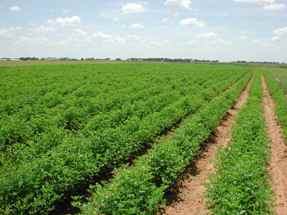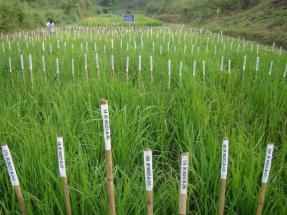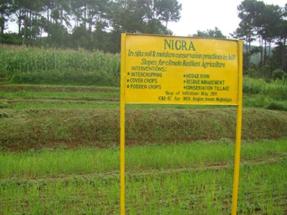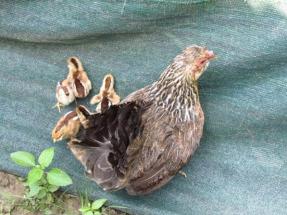Major Objectives/themes for NE region
 1. Identification of temperature tolerant rice and maize varieties for north –eastern hill ecosystem
1. Identification of temperature tolerant rice and maize varieties for north –eastern hill ecosystem
2. Assessment of mitigation potential through soil and water management practices for enhancing climatic resilience
3. Understanding the unique traits in indigenous pig and poultry which make them resilient to climate change and development of data base
Activities under different themes
Theme 1. Identification of temperature tolerant rice and maize varieties for north –eastern hill ecosystem
Activities:
Work plan on Heat tolerance in Rice
• Identification of mini core of germplasm & assemblage of new germplasm
• Generation of phenotypic information of the minicore
 • Generation of genotypic information of the minicore
• Generation of genotypic information of the minicore• Generation of population for mapping
• Generation of differential expression pattern
Work plan on Heat tolerance in maize
• To screen the available germplasm for heat tolerance
• To identify set of lines for heat tolerance
• Generation of genotypic information of the selected lines
• To generate biochemical information
• Generation of population for mapping
• To study nutritional qualities of selected heat tolerant lines
• To generate biochemical information
Work plan on drought tolerance in Rice
• To identify major QTL for grain yield under upland drought stress using drought tolerant rice of north east region
• To validate the effect of identified QTLs in different regions in north east
• To initiate marker assisted backcrossing program to develop breeding lines with drought tolerance and upland adaptability combined with lowland productivity introgressing identified QTL through MAB
Theme 2. Assessment of mitigation potential through SWM practices for enhancing climatic resilience
Activities:
• Survey and documentation of indigenous soil and water management practices in relation to rainfall, altitudes and slopes. (constraints of ITK practices to be identified and suitable alternatives to be suggested) (2011-12)- All NEH state.
 • Development of effective land use model for hill slopes to enhance water and nutrient use efficiency through in-situ soil and moisture conservation practices (involving natural forest at hill top, fodder grasses, cover crops, intercropping, hedge row on risers etc)(2011-13).
• Development of effective land use model for hill slopes to enhance water and nutrient use efficiency through in-situ soil and moisture conservation practices (involving natural forest at hill top, fodder grasses, cover crops, intercropping, hedge row on risers etc)(2011-13).• Evaluation of conservation agriculture practices for resource saving and C-sequestration potential in NEH Region in rice and maize based cropping systems (2011-13)
• Impact of elevated CO2 and temperature on nutrient dynamics and use efficiency, Evapotranspiration Losses and Crop Water Productivity in rice and maize grown in acid soil of North East India (2012-13)- At Umiam only.
• Evaluation of the agroforestry systems for nutrient and moisture conservation for enhanced climate resilience (2011-13)
• Conversion of locally available biomass to biochar, its characterization and influence soil and crop productivity and C-sequestration (2012-13).
• Rainwater management for coping with climate variability (design critera depending upon slope etc) (2012-13)
• Adaptation and mitigation of climate change through farming systems in rainfed ecosystem (Water productivity, carbon sequestration and GHG emission studies etc) (2012-13)
Theme 3. Understanding the unique traits in indigenous pig and poultry which make them resilient to climate change and development of data base
Sub project:
• Effect of thermal stress on embryo survival and conception rate in pigs.
• Effect of temperature, humidity and carbon dioxide level on IVM/IVF of procine oocytes.
Activities:
• Survey on indigenous pigs/ poultry germplasm of NE region for identification of unique traits
 • Data collection on morphological and physiological characters of pigs and poultry
• Data collection on morphological and physiological characters of pigs and poultry• Epidemiology of diseases (common bacterial and viral) in pigs and poultry by passive surveillance.
• Collection of meteorological data for correlation studies
• Database development
Selected technologies for demonstration
1. Stress tolerant HYV Varieties/breeds of Crop/Livestock/Fish
2. Conservation Agriculture (Reduced tillage/residue management)
3. Watershed approach for soil and water conservation
4. Integrated Farming system to cope with climate change
5. Jalkund- micro rainwater harvesting structure for hill top.
6. Roof water harvesting for life saving irrigation
7. In-situ soil moisture conservation
8. System of Rice Intensification (SRI)
9. Raised and sunken bed technology for crop intensification in low land
10. Switching cropping sequences
11. Polyhouse technology for year round vegetable production
12. Utilizing low land rice fallow for vegetable cultivation
13. Composite fish culture for enhancing water productivity
14. Improved animal husbandry (Improved breed/housing/sanitation/feeding/AI etc)
15. Complete feed block technology for livestock
16. Governmental and institutional policies and programmes
17. Devising location specific technologies
18. Promoting carbon sequestration
19. Agroforestry systems for promoting ecosystem and livelihood
20. Contingency planning for aberrant weather conditions


 Critical assessment of different crops in the region for vulnerability to climatic stresses and extreme events, in particular, intra seasonal variability of rainfall
Critical assessment of different crops in the region for vulnerability to climatic stresses and extreme events, in particular, intra seasonal variability of rainfall